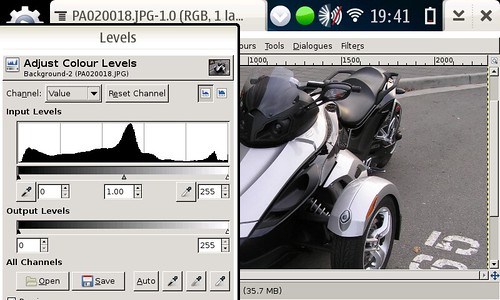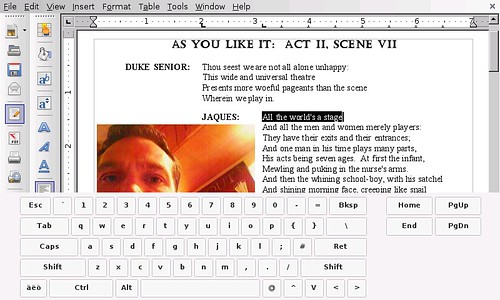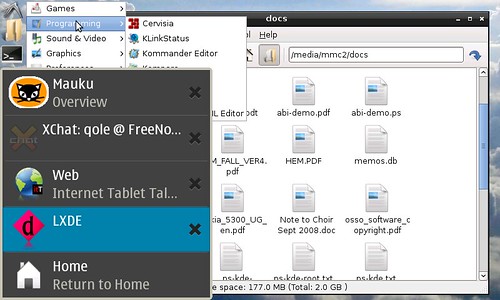Finally, "Easy Debian" is no longer just a "circus trick"; you can use real laptop applications on your tablet at not-unreasonable speeds, thanks to a couple of "turbo charging" boosts we've gotten lately, and a lot of polish from the rapidly maturing Debian side.
I was overwhelmed by the huge positive reaction across the Internet when I released the
first version of my Easy Debian project back in July on Internet Tablet Talk. But I was frustrated by the speed of the "image file" method I was using, and the Debian "armel" architecture was still missing a few key pieces to make it a stable, trustworthy distribution.
Several things have changed since July. First, the Debian armel architecture managed to pull things together in time for the Lenny "freeze" at the end of July. That means there will be a tablet-compatible version of Debian when Lenny becomes the next "stable" version later this year. It also means things like Java, OpenOffice.org and Firefox got some seriously good polishing in the last few months, and it really shows when you run them on the tablet. Also, the LXDE desktop environment came to my attention. It is a really nice, light environment that runs fast on the tablet, and is much more full-featured than the IceWM window manager I was using before.
Secondly, I was given the exciting privilege of Nokia sponsorship to the Maemo Summit in Berlin in September. This motivated me to prepare a new Debian file system with all of the enhancements that had been added in the previous months, as well as some tricks that I had learned since the first version.
Lastly, through the help of others, I found two really effective speed-up techniques that suddenly made the Easy Debian apps really usable! I got down on my virtual knees on the #maemo IRC channel and begged the elite tablet hackers there to help me figure out how to speed up access to the image file that was the basis of the Easy Debian project. Matan came through in a big way; he presented me with some kernel modules and some instructions that accelerated the whole project to almost the same speed as using a dedicated partition (around 2x-4x faster)! I then discovered the ability to set the tablets' processor to "Performance Mode," thanks to lcuk's liqbase project. What a difference that made for processor-hungry apps like OpenOffice and Iceweasel (Firefox)!
So, now that all these pieces are in place, and now that the whole project has "grown up," I felt I needed to push it into the official repositories. I was also getting some gentle pushes from several community members.
Even though the entire project is made from free components (except for one notable exception in the image file), I have released it to the non-free section of Extras-Devel. This is because it was too difficult to get all of the contributed binary bits into a form that could be compiled by the autobuilder that guards the gates of the "free" repository.
Screenshots: (click picture to see more info and larger sizes)The Gimp editing a 4 megapixel digital photo:

OpenOffice Writer editing a document in OS2008, with Matchbox-Keyboard on top:

LXDE, (the Lightweight X Desktop Environment) running on top of OS2008:

Labels: debian, easy, internet tablet, maemo, n800, n810, nokia


